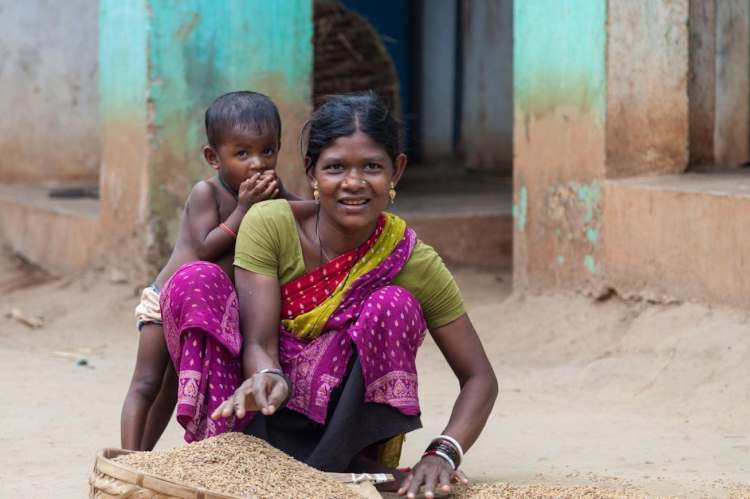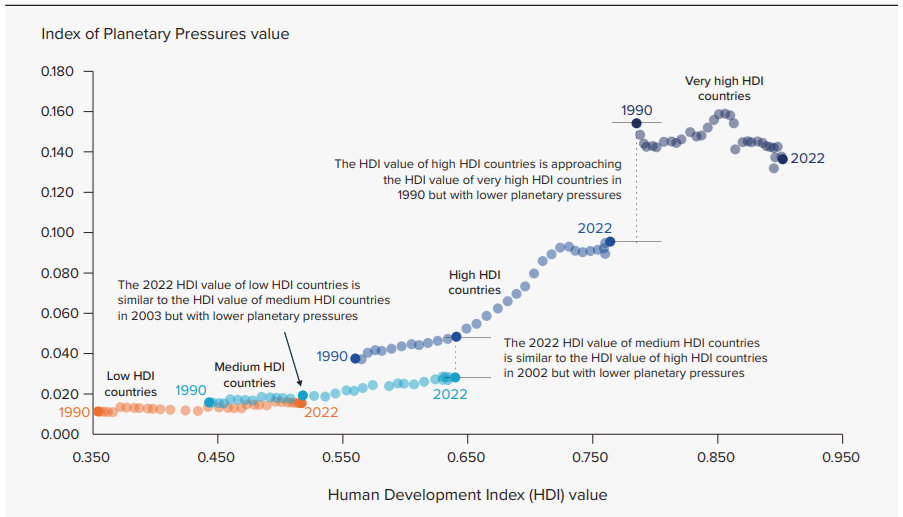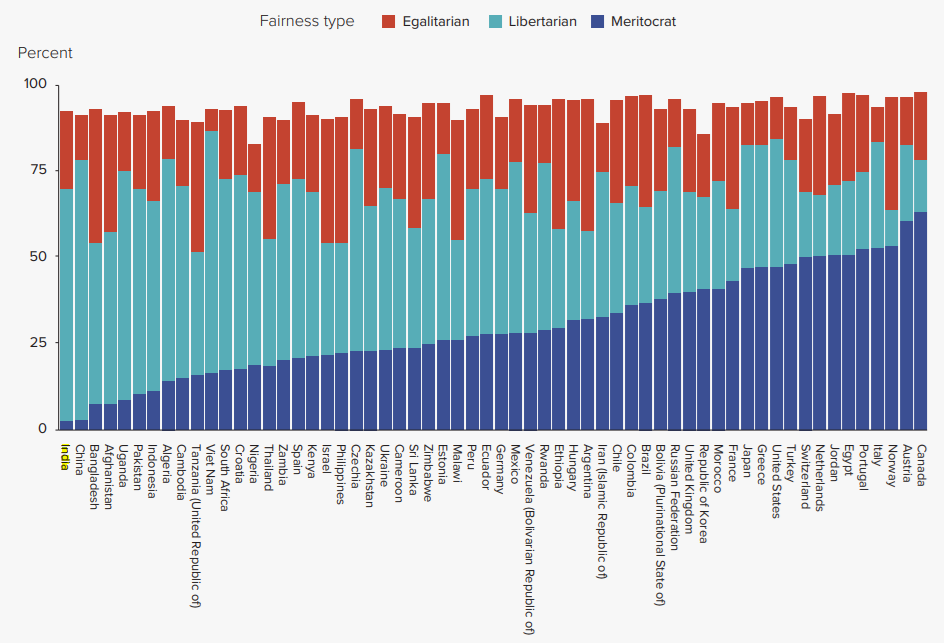
The Human Development Report 2023–24 highlights the importance of addressing inequalities and enhancing cooperation to overcome obstacles to human progress. The report acknowledges India’s progress in improving human development indices while highlighting persistent disparities and vulnerabilities. A notable divergence in the human development index between high and low groups signals the need for targeted interventions to bridge this gap. Despite advancements in some areas, India confronts challenges in managing interdependence, as illustrated by its response to the COVID-19 pandemic and climate change mitigation efforts.
The report traces India’s human development track record. It examines how global issues like economic instability, technological changes, and environmental pressures intersect with local dynamics, affecting human development outcomes. This global perspective is crucial for understanding the external factors influencing India’s development path and the interconnectedness of nations in addressing shared challenges.
READ I Unemployment challenge: Policymakers must focus on demographic dividend
India’s progress in human development indices
India has achieved progress in key aspects of human development, with improvements in HDI reflecting advances in education, healthcare, and living standards. The report commends India’s strides toward gender equality and reducing multidimensional poverty, showcasing the potential for positive change. However, concerns persist, including inequality, limited autonomy for many individuals, and governance challenges. Intergroup conflicts and global crises amplify these vulnerabilities, underscoring the importance of inclusive and sustainable human development in India.
Improvements on the Human Development without increasing planetary pressures

The report also delves into the role of technological advancements in shaping human development. It stresses the importance of digital inclusion and the potential of technology to bridge gaps in education, healthcare, and economic opportunities. However, it also warns of the risks of deepening inequalities if access to technology remains uneven, highlighting the need for policies that ensure digital tools benefit everyone, not just a privileged few.
Widespread differences in fairness preferences around the world

Environmental sustainability is another critical theme in the report, with a focus on how climate change impacts human development. It emphasises the necessity of integrating environmental sustainability into development strategies to ensure long-term well-being and resilience. The report calls for urgent action to address environmental degradation and climate change as integral to achieving human development goals in India and globally.
Human Development Report 2023–2024
The report calls for reducing agency gaps, empowering marginalised communities, and promoting inclusive governance to enhance human development in India. It stresses on the importance of public reasoning and deliberation for informed decision-making and social cohesion.
It discusses the implications of agency gaps in India, proposing strategies to cultivate collective achievements and cooperative behavior. It notes that a significant global population feels they have limited control over their lives and influence in government decisions. In India, these agency gaps prevent individuals from realising their potential and contributing to societal progress. Addressing these gaps necessitates a shift toward more people-centered, co-owned, and future-oriented institutions.
To address agency gaps, Indian institutions should prioritise human development and security. Recognising the interdependence of people and the planet enables the creation of frameworks that empower individuals to lead dignified lives. This people-centered approach underpins inclusive growth and sustainable development.
Institutions in India should ensure fair power distribution, setting collective goals and responsibilities to achieve desired outcomes. Promoting norms for collective achievements and cooperative behavior allows individuals to engage in decision-making and community development. Co-owned governance enhances accountability, transparency, and equity in India’s development journey.
Future-oriented perspective
Adopting a future-oriented perspective encourages collaborative and innovative solutions to challenges. Facilitating deliberation and consensus-building instills hope and resilience, fostering empowerment and agency. This approach helps India address complexities, innovate, and effectuate positive change.
Customising strategies to India’s diverse contexts is vital for effective dialogue and action. Contextually relevant interventions foster community engagement, trust, and sustainable development, ensuring that initiatives resonate with local needs and aspirations.
Finally, the report highlights the significance of international cooperation in advancing human development. It advocates for strengthened global partnerships to tackle common challenges, share knowledge, and mobilise resources. By working together, countries can enhance their collective ability to improve human development outcomes and respond effectively to global crises.
The Human Development Report 2023–2024 emphasises the importance of narrowing agency gaps in India to promote collective achievements and cooperative behavior. Reimagining institutions as people-centered, co-owned, and future-oriented will empower citizens, enable inclusive growth, and advance human development goals. A forward-looking perspective and contextually tailored strategies are essential for driving positive change and building a resilient, equitable society in India.
(Md Quaisar Ali is a research scholar at the Department of Economics and Finance, BITS Pilani KK Birla Goa Campus.)
